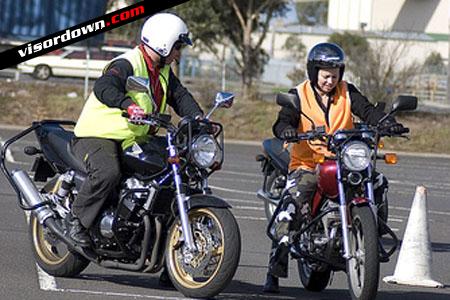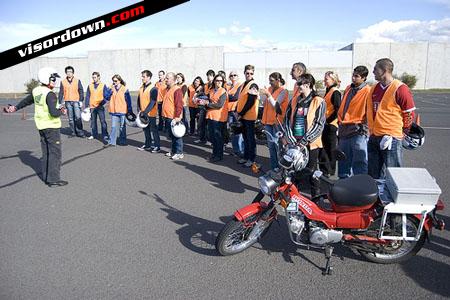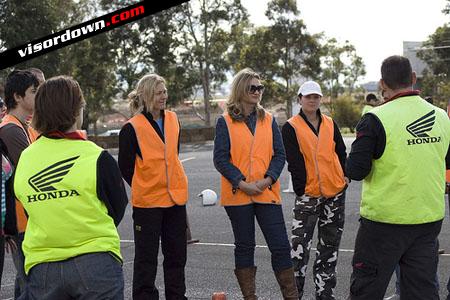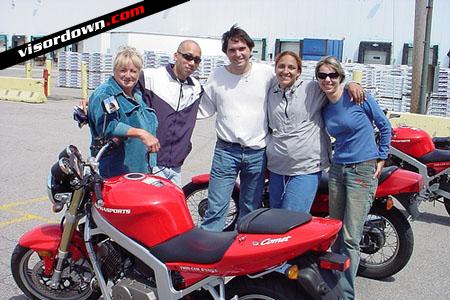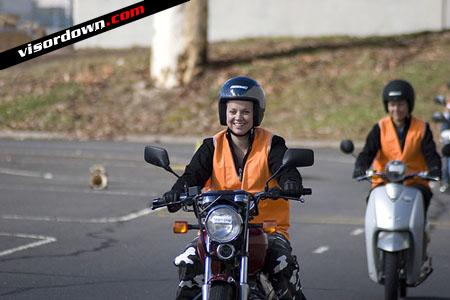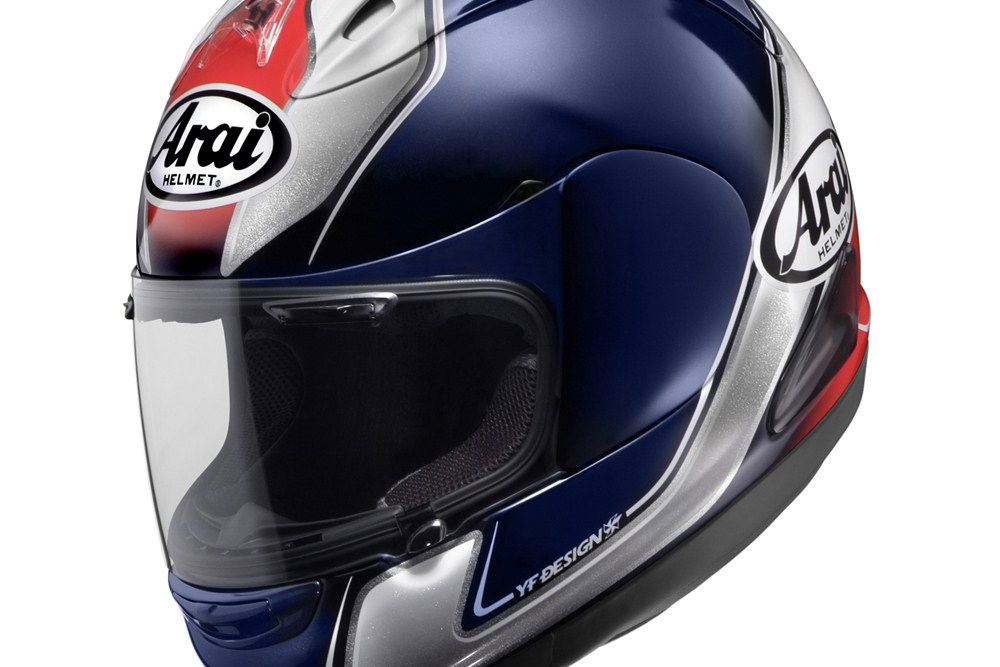Learn to ride: Choosing the right training school
Like any business, there are good motorcycle schools and bad ones. Here's Visordown's guide to finding the best school in your area

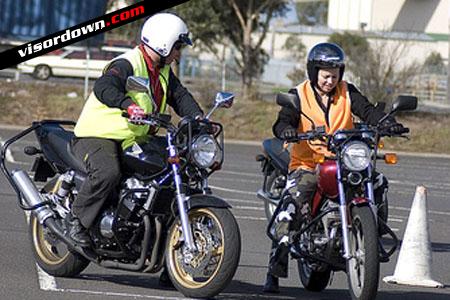
Quality instruction's the key to learning quickly and safely
WHAT'S THE most important factor you should consider when looking for a suitable bike training school?
Many new riders are swayed by the strength of the company's pass rate, the newness of their machines, or a special discounted course fee " and while these factors are all worthy criteria the most important thing to look for when choosing a training school is the quality of the instruction. So how do you go about it?
Referrals
All Approved Training Bodies (ATBs) are regulated by the Driving Standards Agency (www.dsa.gov.uk), which means the school and their instructors will have undergone some rigorous training and assessments before being let loose on Joe Public. But even so, some schools are better than others, so why not ask around your mates to see where they learned to ride? Alternatively, log onto Visordown's General forum and ask the readers the best school in your area. There's a massive wealth of experience in there " so you can bet your life someone will be able to help out. Either way, you're bound to get a straightforward no bullshit answer.
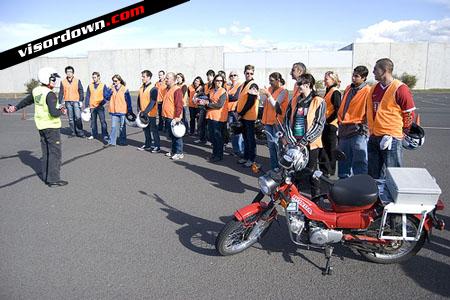
Er, right, there's a bit of a shortage of bikes today
Big or small?
Some training organisations are large, nationwide set-ups, while others are smaller operations run by private individuals. Larger schools, like BSM, are usually run in a corporate business-minded fashion, smaller privately-owned ones are, on the whole, more laid back. Both should offer excellent training and run their courses in-line with the Driving Standards Agency's (DSA) guidelines. If you're looking to haggle or take your training in unsociable hours then a private school is likely to be more receptive.
Course prices
Course prices can vary, as some schools charge considerably more or less than others. But a cheap course isn't always necessarily a good course, and vice-versa. If one school's offering a 5-day course at an impossibly low rate then there's probably a reason why, so ask lots of questions. Some schools offer fully comprehensive insurance " others don't and some will slap you with a big bill if you crash one of their bikes. Even though the government regulate every Approved Training School, there are still a few unscrupulous businesses operating in a shoddy manner.
Sadly, not everyone passes first time, so ask what the school charges for further training and bike hire.
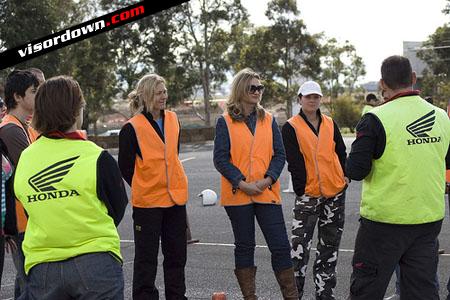
The Instructor should be confident, friendly and a good communicator
The Instructor
The Instructor is the person who coaches you to ride a motorcycle and go on to gain your full licence. They should be: friendly, knowledgeable and a great communicator - so try to meet your instructor face-to-face before booking. What are your initial impressions? If you're not impressed then walk away, as there are plenty of schools in most towns.
Pay a visit
Before you commit to booking over the phone, it's a good idea to check out the your prospective school's set up.
Does it look professional?
Are their bikes in good working order?
How long have they been in business?
Are their bikes insured fully comprehensive?
Is the instructor friendly and knowledgeable?
Will you keep the same instructor for the duration of the course?
What are the training fees if you don't pass first time?
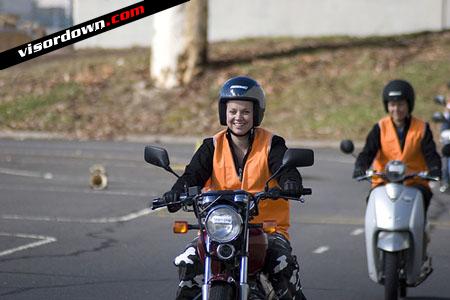
This is what it's all about
Finally...
Learning to ride a motorcycle should be fun. So it's well worth spending a bit of time researching the schools in your area. If you like their set up and you get along with the instructor then you're already half way there.
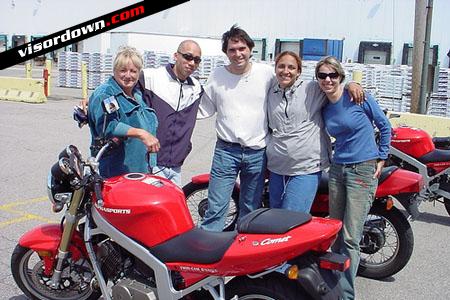
Some people make life-long friends when they're training
Useful Contacts
Kevin Williams www.survivalskills.co.uk
Bikesafe 01492 510969 www.bikesafe.co.uk
BSM 0870 902 1700 www.bsm.co.uk
BMF Rider Training 0800 328 9609 www.bmf.co.uk
Institute of Advanced Motorists 0208 996 9600
Driving Standards Agency 0115 901 2500 www.dsa.gov.uk
Department of Transport www.dft.gov.uk
WHAT'S THE most important factor you should consider when looking for a suitable bike training school?
Many new riders are swayed by the strength of the company's pass rate, the newness of their machines, or a special discounted course fee " and while these factors are all worthy criteria the most important thing to look for when choosing a training school is the quality of the instruction. So how do you go about it?
Referrals
All Approved Training Bodies (ATBs) are regulated by the Driving Standards Agency (www.dsa.gov.uk), which means the school and their instructors will have undergone some rigorous training and assessments before being let loose on Joe Public. But even so, some schools are better than others, so why not ask around your mates to see where they learned to ride? Alternatively, log onto Visordown's General forum and ask the readers the best school in your area. There's a massive wealth of experience in there " so you can bet your life someone will be able to help out. Either way, you're bound to get a straightforward no bullshit answer.
Big or small?
Some training organisations are large, nationwide set-ups, while others are smaller operations run by private individuals. Larger schools, like BSM, are usually run in a corporate business-minded fashion, smaller privately-owned ones are, on the whole, more laid back. Both should offer excellent training and run their courses in-line with the Driving Standards Agency's (DSA) guidelines. If you're looking to haggle or take your training in unsociable hours then a private school is likely to be more receptive.
Course prices
Course prices can vary, as some schools charge considerably more or less than others. But a cheap course isn't always necessarily a good course, and vice-versa. If one school's offering a 5-day course at an impossibly low rate then there's probably a reason why, so ask lots of questions. Some schools offer fully comprehensive insurance " others don't and some will slap you with a big bill if you crash one of their bikes. Even though the government regulate every Approved Training School, there are still a few unscrupulous businesses operating in a shoddy manner.
Sadly, not everyone passes first time, so ask what the school charges for further training and bike hire.
The Instructor
The Instructor is the person who coaches you to ride a motorcycle and go on to gain your full licence. They should be: friendly, knowledgeable and a great communicator - so try to meet your instructor face-to-face before booking. What are your initial impressions? If you're not impressed then walk away, as there are plenty of schools in most towns.
Pay a visit
Before you commit to booking over the phone, it's a good idea to check out the your prospective school's set up.
- Does it look professional?
- Are their bikes in good working order?
- How long have they been in business?
- Are their bikes insured fully comprehensive?
- Is the instructor friendly and knowledgeable?
- Will you keep the same instructor for the duration of the course?
- What are the training fees if you don't pass first time?
Finally...
Learning to ride a motorcycle should be fun. So it's well worth spending a bit of time researching the schools in your area. If you like their set up and you get along with the instructor then you're already half way there.
Useful Contacts
Kevin Williams www.survivalskills.co.uk
Bikesafe 01492 510969 www.bikesafe.co.uk
BSM 0870 902 1700 www.bsm.co.uk
BMF Rider Training 0800 328 9609 www.bmf.co.uk
Institute of Advanced Motorists 0208 996 9600
Driving Standards Agency 0115 901 2500 www.dsa.gov.uk
Department of Transport www.dft.gov.uk
